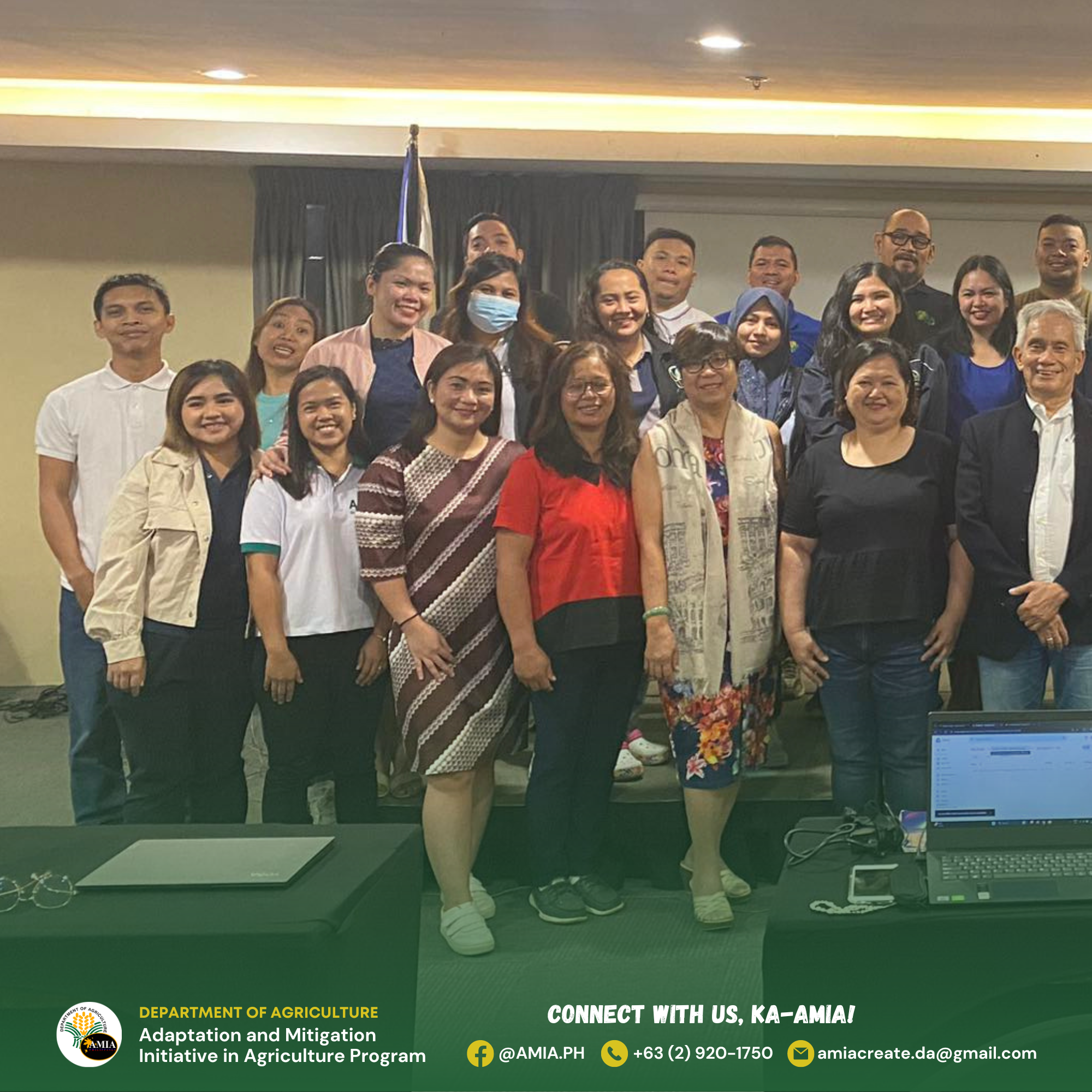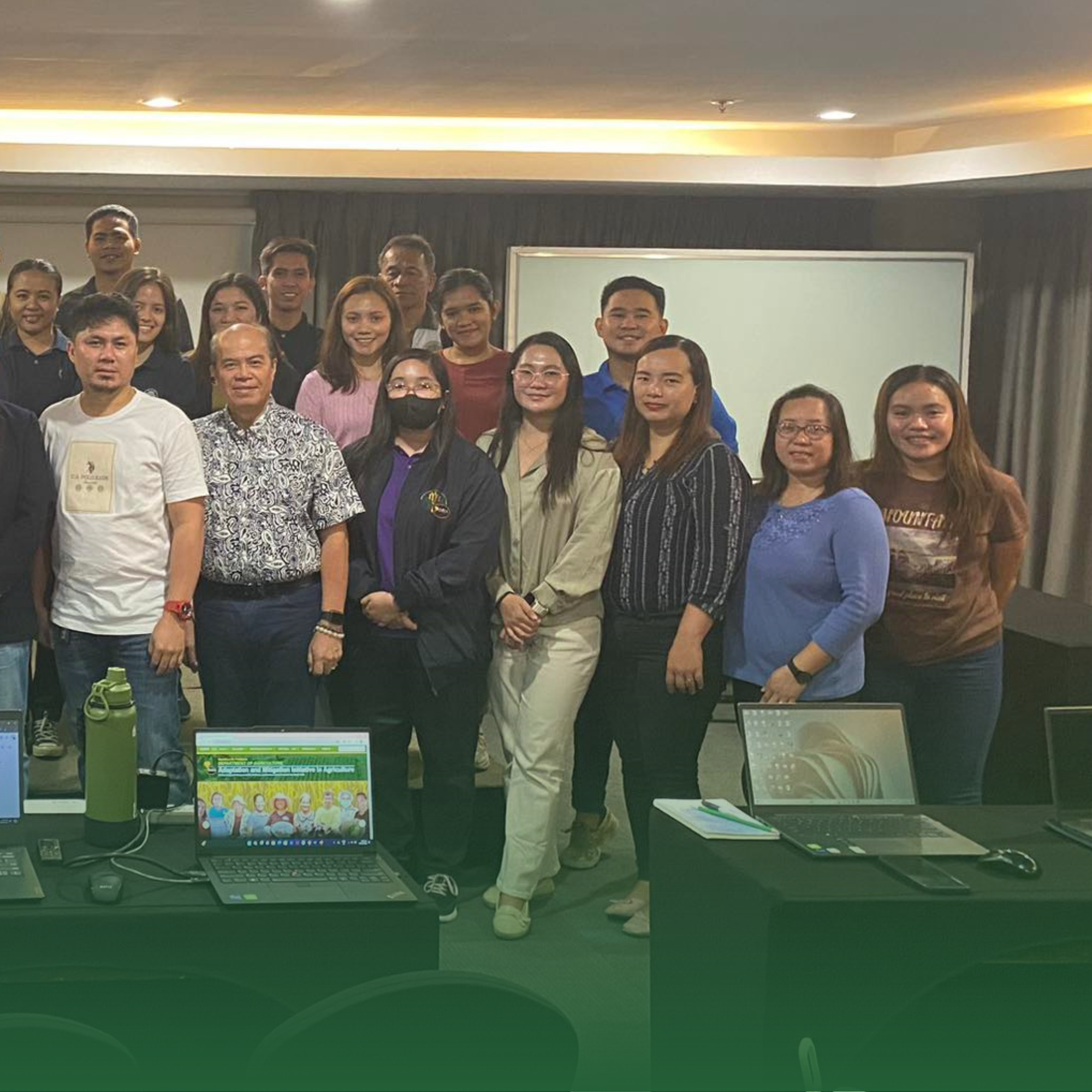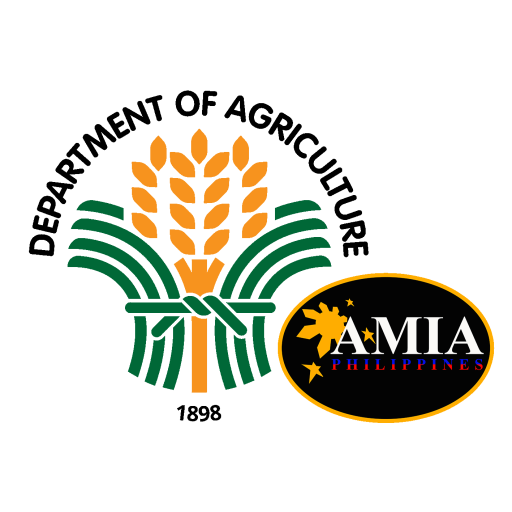

The Department of Agriculture Climate Resilient Agriculture Office (DA-CRAO) under the Asian Development Bank (ADB) Technical Assistance (TA) for Agriculture, Natural Resources, and Environment (ANRE) under Subprogram 2 – Reform Area 2: Resilience to Climate Impacts Enhanced of the Climate Change Action Program (CCAP) organized a workshop to enhance the Monitoring and Evaluation (M&E) frameworks for the Adaptation and Mitigation Initiative in Agriculture (AMIA) Program and the Mainstreaming of Climate Resilience in the Agriculture Sector. The event, held from April 22–26, 2024, in Quezon City, brought together regional teams and focal points as well as the DA Central Office’s Monitoring Units to refine the results-based M&E frameworks drafted under the leadership of DA CRAO with support from ADB and delivered by NIRAS.
In her opening message, DA-CRAO Senior Technical Officer Ms. Perla Baltazar, who represented DA-CRAO Director Alicia G. Ilaga, highlighted the critical role of M&E in ensuring the success of the AMIA Program, including identifying best practices and uncovering areas for improvement. She also stressed the significant contribution of the regional teams in this process.
During the event, regional AMIA focal points and staff took part in the workshop discussions and provided their comments and inputs, which helped enrich the frameworks for the AMIA Program and Mainstreaming Climate Resiliency. Mr. Cesar Umali, the M&E Specialist engaged under the ADB TA, served as resource person during the event and facilitated the workshop together with the DA-CRAO. Mr. Umali emphasized the importance of mainstreaming climate resiliency and strengthening the AMIA M&E framework to enable it to also support programs, projects, and activities (PPAs) within the local government unit’s local development plans through data-driven evaluation.
Moreover, the workshop included a discussion of the issues and concerns related to the AMIA Management Information System (MIS), a system developed by DA CRAO to support the M&E of the AMIA Program’s components. Mr. Rollie Osayan, the system’s developer, facilitated the discussion. Also part of the activity was the population of baseline data on AMIA beneficiaries, Villages, Farmers’ Cooperatives and Associations (FCAs), and Enterprises.
Apart from the AMIA regional focals and team members, also present during the event were Ms. Kristina Concepcion Labita, Development Management Officer of the DA Special Projects Coordination and Management Assistance Division, and DA Planning and Monitoring Service OIC-Director Michael Sollera. They lauded the initiative, emphasizing the importance of M&E in assessing the financial and physical performance of the Department, and encouraged an open exchange of information and ideas among the participants. ###


















